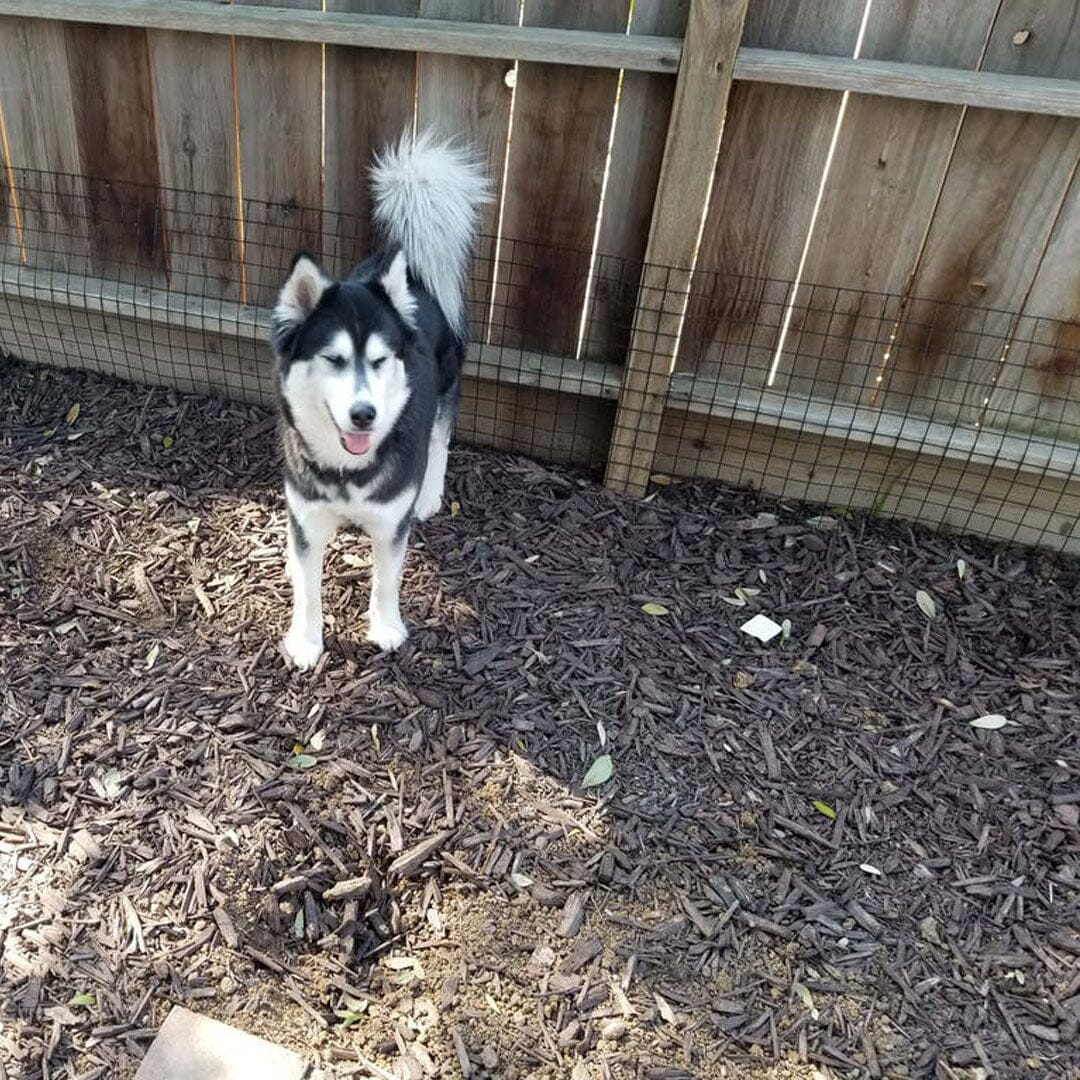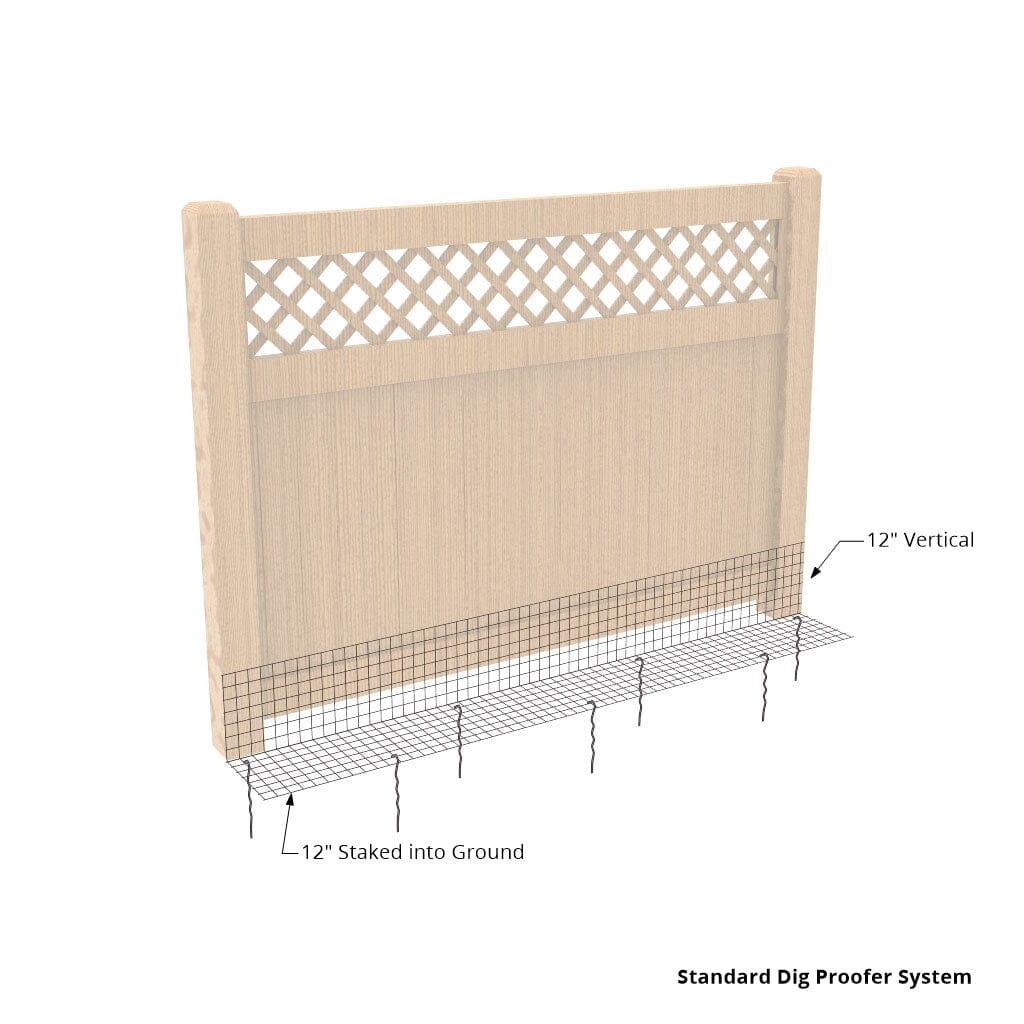Imagine stepping into your backyard only to find your dog has turned it into a digging paradise. Your fence, which once stood strong and reliable, now seems like a minor obstacle to your furry friend.
You’re not alone; many dog owners face this same challenge. You want your dog to enjoy the outdoors, but you also want to protect your garden and keep your pet safe. You’ll discover effective strategies to stop your dog from digging under your fence.
You’ll learn why your dog digs and how to redirect that energy into more positive activities. By the end, you’ll feel empowered to take control, ensuring a happy and secure environment for both you and your pet. Keep reading to unlock the secrets of a dig-free backyard.
Identify The Reason
To stop your dog from digging under the fence, first identify the reason. Understanding the cause is essential. This helps you address the behavior effectively. Dogs dig for various reasons. Some dig due to behavioral issues. Others may dig because of environmental factors. Let’s explore these causes.
Behavioral Causes
Dogs often dig to seek attention. They know this action catches your eye. Some dogs dig out of boredom. They need more mental stimulation. Digging can also be a natural instinct. This behavior is inherited from their ancestors. Certain breeds have a stronger digging urge. Identifying these causes helps address the issue.
Environmental Factors
Environmental factors can prompt dogs to dig. They may dig to escape extreme weather. The ground provides a cool spot in hot weather. Or warmth in the cold. Dogs may dig to hunt small animals. Burrowing critters can entice them to dig. The smell of fresh soil may also attract them. Identifying environmental triggers is key.
Effective Fencing Solutions
Dogs dig under fences for many reasons. They might be bored, curious, or trying to escape. Finding effective solutions can save time and stress. Explore different methods to keep your dog safe and secure.
Barrier Installation
Installing barriers can deter digging behavior. Consider adding a chicken wire below the fence line. It forms an underground barrier that stops dogs from digging through. Bury the wire at least one foot deep for best results. Rocks and gravel can also work as barriers. They make digging uncomfortable and challenging for dogs.
Fence Extensions
Fence extensions offer a practical way to prevent escapes. Extend the fence height with additional panels. This reduces the chance of dogs jumping over. For more security, angle the extension inward. This discourages climbing and keeps your pet inside. Use materials like wood or metal for durability and strength.
Training Techniques
Training a dog not to dig under your fence takes patience and consistency. Understanding why your dog digs is important. Once you know the reason, you can address it effectively. Training techniques can be a great help. Let’s explore some methods that work well.
Positive Reinforcement
Dogs respond well to rewards. Praise your dog when they avoid digging. Use treats to encourage good behavior. This builds a positive association. Spend time playing with your dog. It helps burn off energy. A tired dog is less likely to dig. Consistent training leads to lasting results.
Deterrent Methods
Sometimes dogs need a little nudge to stop digging. You can use deterrents to discourage this habit. Place rocks or chicken wire near the fence. Dogs find these uncomfortable to dig through. Citrus peels can also deter dogs. They dislike the smell. Provide designated digging areas. This satisfies their natural instinct. Training them where to dig is key.

Credit: www.dogproofer.com
Provide Alternatives
Offer your dog engaging toys to distract from digging. Create a designated digging area for safe, acceptable digging.
Providing alternatives can be a game-changer when it comes to preventing your dog from digging under the fence. If your furry friend loves to dig, it might be more about channeling their energy constructively rather than stopping them entirely. By offering alternatives, you can satisfy their natural instincts and keep your yard intact.Designated Digging Area
Creating a designated digging area can be a win-win for you and your dog. Think of it as their own little sandbox. You can fill a specific spot in your yard with soft soil or sand. Encourage your dog to dig here by burying toys or treats. This makes the spot appealing and shifts their focus from the fence. Over time, your pup will associate this area with fun and rewards. It’s a tactic I tried with my own dog, Max. His enthusiasm for digging was redirected, saving my garden from his adventurous paws.Engaging Toys And Activities
Keeping your dog entertained is key to preventing unwanted digging. A bored dog is often a digging dog. Offer toys that challenge them mentally and physically. Interactive toys, like puzzle feeders, can keep them occupied for hours. Rotate toys regularly to maintain their interest. Additionally, engaging in activities like fetch or tug-of-war can tire them out, reducing the energy they might otherwise use to dig. Have you ever noticed how a well-exercised dog is a well-behaved dog? Consider scheduling a daily playtime routine. This not only strengthens your bond but also channels their energy positively. Have you tried these alternatives with your dog? How did they respond? Share your experiences or any creative solutions in the comments.Consulting Professionals
Struggling with your dog digging under the fence? Consulting Professionals offer effective tips to keep your yard secure. Discover simple strategies to train your furry friend and maintain a beautiful garden.
Dealing with a dog that loves to dig under your fence can be a frustrating experience. Yet, sometimes the best solution is to reach out to those who have extensive expertise in handling such situations. Consulting professionals can offer insights and strategies that you might not have considered. They bring a wealth of experience to the table, helping you manage your dog’s digging behavior effectively.Dog Behavior Experts
Dog behavior experts can be a valuable resource. They understand the psychology behind your dog’s actions. Maybe your dog is seeking attention, trying to escape, or just bored. A behavior expert will observe your dog and provide tailored advice. They might suggest additional training or interactive toys to keep your dog engaged. One dog owner shared how consulting a behavior expert changed everything. Their dog was constantly digging, but with professional guidance, they learned to redirect that energy positively. Have you considered what deeper needs your dog might be expressing through digging?Veterinary Advice
Consulting a vet can also provide insights. Sometimes, digging can be a sign of an underlying health issue. If your dog has suddenly started digging, a vet check-up can rule out medical causes. They might check for anxiety, nutritional deficiencies, or parasites. A friend once discovered that their dog’s digging was linked to a mild discomfort caused by a dietary issue. The vet’s advice led to a simple dietary adjustment, and the digging decreased significantly. Is your dog’s digging behavior a call for help that you’re not yet aware of? Seeking professional help not only addresses the immediate problem but also contributes to your dog’s overall well-being. Don’t hesitate to reach out. Your dog’s happiness and your peace of mind might just be a phone call away.
Credit: www.wikihow.com
Regular Monitoring
Regular monitoring helps prevent your dog from digging under the fence. It involves observing your yard frequently for any signs of digging. This proactive approach helps identify issues early. You can then make timely adjustments to your strategy. Ensuring the safety and security of your dog becomes easier.
Spotting New Holes
Check your yard for new holes often. Fresh holes mean your dog is active. Inspect the fence line carefully. Look for disturbed soil or gaps. Early detection is key. It prevents further digging and potential escapes. Regular inspections help maintain a secure yard.
Adjusting Strategies
Adjust your strategies based on your observations. Fill in new holes promptly. Reinforce the fence where necessary. Use deterrents like rocks or chicken wire. Consider training methods to redirect the digging behavior. Each dog is different. Adapt your approach to what works best.

Credit: www.dogproofer.com
Frequently Asked Questions
Why Does My Dog Dig Under The Fence?
Dogs dig for many reasons. They may be bored, anxious, or want to escape. Understanding their behavior helps find solutions.
How Can I Stop My Dog From Digging?
Provide toys and mental stimulation. Consider adding a barrier or using chicken wire under the fence.
What Can I Use To Block My Dog From Digging?
Use rocks, chicken wire, or a buried fence extension. These prevent your dog from tunneling under.
Is Digging Under Fences A Common Dog Behavior?
Yes, many dogs dig under fences. It’s a natural behavior linked to curiosity and instincts.
Will Training Help Stop My Dog From Digging?
Yes, consistent training can help. Teach commands and reward good behavior to discourage digging.
Conclusion
Stopping your dog from digging under the fence requires patience and consistency. Use positive reinforcement to encourage good behavior. Distract your dog with toys and activities. Secure your fence to make digging difficult. Regularly check for holes and fill them promptly.
Spend time training your dog to understand boundaries. Ensure your dog gets enough exercise to reduce boredom. Consult a professional if digging persists. These steps can help protect your yard. Your dog’s safety is important. Keep them happy and secure.
Building trust is key. Enjoy a peaceful yard with your furry friend.





